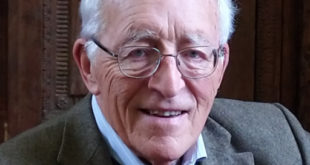.[embedded content] En gigant i svensk musik har gått ur tiden. Sven-Bertil Taube (1934-2022). R.I.P.
Read More »The dangers of using unproved assumptions
The dangers of using unproved assumptions The unpopularity of the principle of organic unities shows very clearly how great is the danger of the assumption of unproved additive formulas. The fallacy, of which ignorance of organic unity is a particular instance, may perhaps be mathematically represented thus: suppose f(x) is the goodness of x and f(y) is the goodness of y. It is then assumed that the goodness of x and y together is f(x) + f(y) when it is...
Read More »Fyra år med väderspänning
Fyra år med väderspänning FN:s generalsekreterare säger att världen står i brand och att det pågår en klimatkris. Men flera sverigedemo- krater i riksdagen håller inte med, visar en enkät som SVT Nyheter gjort. Av de 108 ledamöter som svarat håller nästan alla helt eller delvis med FN- chefen. Sex av åtta från SD som svarat uppger att de “inte alls håller med” eller “delvis inte håller med”. SD-ledaren Jimmie Åkesson är skeptisk till...
Read More »Gendarmenmarkt (personal)
With loved one in one of our favourite spots in Berlin.
Read More »Diskret matematik
.[embedded content] Bra föreläsningsserie från Chalmers! När jag själv läste matematik i Lund på 80-talet tyckte jag bäst om kurserna i diskret matematik. Mycket logik och problem av ‘tankenötskaraktär’. Och kul hjärngympa att lägga några timmar på när man vill pausa lite från schackspel och korsord …
Read More »The Binomial and Poisson distributions (student stuff)
The Binomial and Poisson distributions (student stuff) .[embedded content]
Read More »Den goda viljan
.[embedded content] Bille Augusts och Ingmar Bergmans mästerverk. Och med Stefan Nilssons musik, det vackraste och mest suggestiva i filmmusikväg som någonsin gjorts.
Read More »Weekend combinatorics
Thinking of spending an extended weekend at his summer residence, yours truly wanted to take five of his favourite books with him. On my bookshelf are five books by Strindberg and four by Shakespeare. I thought of bringing with me at least two of the Strindberg volumes. In how many ways can I do this?
Read More »What’s the use of economics?
What’s the use of economics? The simple question that was raised during a recent conference … was to what extent has — or should — the teaching of economics be modified … The simple answer is that the economics profession is unlikely to change. Why would economists be willing to give up much of their human capital, painstakingly nurtured for over two centuries? For macroeconomists in particular, the reaction has been to suggest that modifications of...
Read More »A humble suggestion …
A humble suggestion …
Read More » Lars P. Syll
Lars P. Syll




